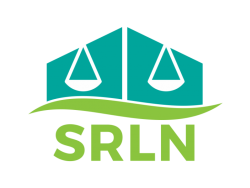Document Author
Year Published
Topic
- (-) Remove Trial Court Self-Help filter Trial Court Self-Help
- Self-Help Centers (4) Apply Self-Help Centers filter
- Reports, Evaluations, Best Practices, Surveys (2) Apply Reports, Evaluations, Best Practices, Surveys filter
- Research (2) Apply Research filter
- Starting a Self-Help Center (2) Apply Starting a Self-Help Center filter
- 100% Access to Justice (1) Apply 100% Access to Justice filter
- Best Practices (1) Apply Best Practices filter
- Best Practices for Self-Help Centers (1) Apply Best Practices for Self-Help Centers filter
- Courts (1) Apply Courts filter
- Evaluation (1) Apply Evaluation filter
- LEP and Access (1) Apply LEP and Access filter
- Plain Language & LEP (1) Apply Plain Language & LEP filter
- Presentations (1) Apply Presentations filter
- Reports (1) Apply Reports filter
- Webinars (1) Apply Webinars filter
Tags
Post date
Search results
Resource: 12 Tips on Working with an Interpreter (Language Lines Services 2005)
This short tip sheet from Language Line Services can help staff understand how to best engage an interpreter. Trial Court Self-Help LEP and Access 12 Tips On Working Effectively With An Interpreter (2005).pdf Language Line Services Inc. 2005 ...

Report: Model Self-Help Pilot Program A Report To The Legislature (California 2005)
Executive Summary The Model Self-Help Center Pilot Program is one part of the California Judicial Council’s effort to address two key goals in its strategic plan: increasing access to justice and improving the quality of justice and service to the public. ...

Webinar: Alaska Family Law Self-Help Center (SRLN 2005)
This webinar on the Alaska Family Law-Self Help Center was presented on May 25, 2005, by the Center's then-co-director (and current SRLN Coordinator) Katherine Alteneder. The Alaska Family Law-Self Help Center was established by the Alaska Court Sys ...

Best Practices: Best Practices for Programs to Assist Self-Represented Litigants in Family Law Matters (Maryland 2005)
From the introduction: Maryland courts recognize the increasing participation of self-represented litigants, particularly in family law matters. Although some litigants decline the opportunity to retain qualified counsel, the overwhelming majority of self ...